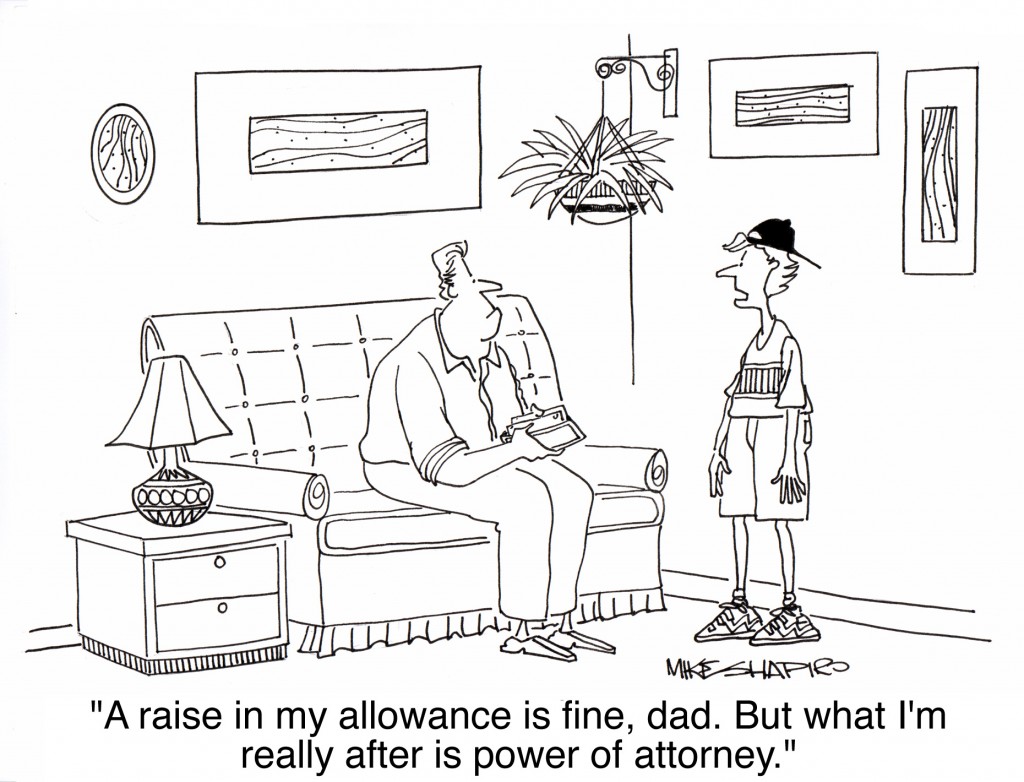Thinking about yourself or a loved one losing mental or physical capacity is far from pleasant but making arrangements for all eventualities is what a caring person does. Nowadays one in three over-65s develop dementia and we all know that accidents can happen at any time irrespective of age so having a power of attorney in place is super important. Once capacity has been lost it will be too late. (article continues below…)

What exactly is a Power of Attorney though?
A Power of Attorney is a legal document in which a person nominates a representative known as an ‘attorney’ to make important decisions on their behalf when they aren’t able to do so on their own. This could be because of illness, disability or an accident. Out of all the three, the latter is the most probable circumstance that can transpire, for if you were to find out more about the number of accidents that happen and how expensive they can get, you’d know that it indeed is a plausible scenario. The attorney will usually be a close friend or relative. The power of attorney is only effective for the period of time that the person is incapacitated.
What kinds of powers of attorney are there?
Currently there are ordinary powers of attorney and lasting powers of attorney. There is also enduring power of attorney which are no longer issued, however, currently existing ones are still valid.
An ordinary power of attorney is a useful way of granting another person the power to manage your affairs when you still have mental capacity but it is difficult to do so yourself. This is often because of a physical disability or illness.
A lasting power of attorney is similar to power of attorney but its power continues if the person loses mental capacity perhaps through going into a coma or developing Alzheimer’s.
There are Health and welfare lasting powers of attorney that give the attorney the power to make personal welfare and medical treatment decisions and Property and financial affairs lasting power of attorney which gives your attorney the power to make financial decisions on your behalf.
What can I do if the person has already lost mental capacity?
If someone has lost mental capacity and doesn’t have a power of attorney set up, doing things such as accessing their bank account to pay for care is far from straightforward.
It may be possible to apply to the Court of Protection. The court may either decide to make decisions themselves or appoint a ‘deputy’ to make the decisions on their behalf, however, the deputy will continue to be answerable to the Court of Protection.
This can be a very expensive and drawn out process with annual fees going to the court of protection.
Can a power of attorney be cancelled after it has been put in place?
A power of attorney can be cancelled by the person who created it but they must have the mental capacity to do so.
A power of attorney may also be cancelled if the attorney dies, loses mental capacity themselves, is removed by the Court of Protection or becomes bankrupt.
Will the attorney look after my estate when I die?
No. Your power of attorney will end when you die. Your estate will be looked after by your executors or personal representatives from there on in.
Can I have more than one attorney?
A donor can appoint one or several attorneys and they can act jointly (they make decisions together) or severally (they make decisions separately).
How do I know if someone lacks mental capacity?
The Mental Capacity Act 2005 states that a person lacks capacity if they are unable to make a decision, if they can’t understand information relevant to a decision, retain that information long enough to make the decision; use or weigh that information; or communicate the decision.

